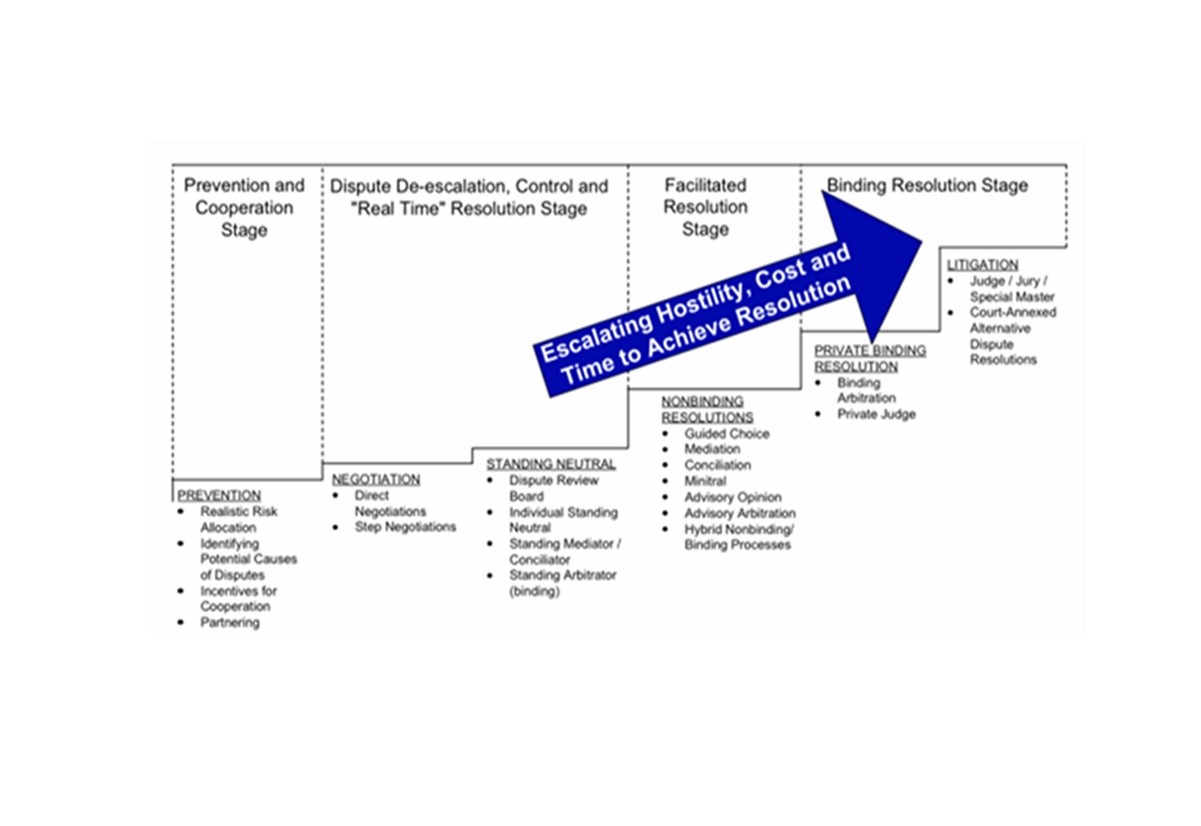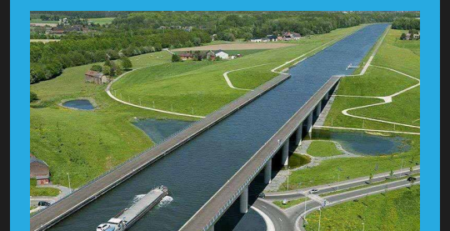SUSTAINABILITY OF THE CONSTRUCTION INDUSTRY THROUGH ALTERNATIVE DISPUTE RESOLUTION

An Image of Workers in Southern Africa Source: ConstructionReviewOnline

David S Kaggwa[FCIArb], Senior Partner & Head of Construction Law & Arbitration Practice, Kaggwa & Kaggwa Advocates
This presentation was prepared and presented by Our Senior Partner Mr. David S Kaggwa [FCIArb] at the 15th International Biennial Conference, 2017 organized by the Botswana Institution of Engineers (BIE) at the Phakalane Conference Centre, Gaborone Botswana which was held on the 17th to 19th October 2017
According to the Africa Investment Index 2017 by Quantum Global Research, Africa is now viewed as an attractive investment destination because of its natural resources, pleasant weather, a growing market and infrastructure development.
According to the World Bank report on Doing Business 2017, 190 countries are ranked based on their ease of enforcement of contracts. Under the same report, Singapore ranked 2nd and its contracts are enforced in 160 days at a cost of 25.8% of the value of the claim.
Alternative Dispute Resolution (ADR) is a structured negotiation process under which the parties to a dispute negotiate their own settlement with the help of an intermediary who is a neutral person and trained in the techniques of ADR. ADR includes; arbitration, conciliation, mediation, and adjudication
LITIGATION
Disputes are inevitable in the construction process. Most construction projects are delivered late by contractors and disputes have been found as a major cause of such time overruns. These disputes arise mainly at the design stage way up to the drafting of the construction contracts.
The nature of construction contracts is that they are anticipatory, in that the obligations arising thereunder are to be performed at a future time and this leads to ambiguity, uncertainty, and errors which inevitably manifests into disputes.
Other causes of the disputes include poor planning, lack of proper communication amongst the various players on the project and underestimation of the actual cost of the project. In cases where the parties have gone straight to court, the results have not been good due to delayed payments for the successful party and huge liabilities for the losing party.
Table 1: Selected court cases on construction from Uganda and their effect on time and cost
| Case | Time | Claim
US$ |
Award
US $ |
Dispute | Court |
| Emerald Hotel Ltd v Barclays Bank Ltd | 8 yrs | 1,846,000 | 3,200,000 | Delay in the completion of a hotel. | High Court |
| Golf View Inn Ltd v Barclays Bank Ltd | 6 yrs | 76,000 | 200,000 | Delay in the completion of a hotel. | High Court |
| Scorpion Holdings Ltd v Lion Assurance Ltd | 4 yrs | 95,800 | 222,000 | Indemnity for construction equipment | Court of Appeal |
| Mohamed v Roko Construction. | 9 yrs | 162,342 | 498,130 | Setting aside an arbitration award. | Supreme Court |
| JK Patel v Spear Motors | 5 yrs | 253,000 | 710,000 | Construction of a commercial complex | Supreme court. |
| Sietco v Noble Builders. | 7 yrs
|
1,254,567
|
2,308,403
|
Dispute between contractor and a sub-contractor. | Supreme court. |
ALTERNATIVE DISPUTE RESOLUTION
Arbitration is where the parties in dispute refer the issue to a third party for resolution and agree to be bound by the resulting decision. The third party is an independent intermediary who is neutral and trained in the techniques of ADR.
Mediation is the intervention in a dispute by an acceptable third party who has limited or no authoritative decision – making power, who assists the involved parties to voluntarily reach a settlement. Unlike in arbitration, the mediator does not decide but the parties do make the decision which is reduced into a settlement agreement
Adjudication is a process in which the parties to a dispute submit their case to a third party for a decision. This decision is not binding unless both parties gave their prior agreement that it should be, or otherwise if the aggrieved party fails to register his dissatisfaction within a stipulated period. If disputed, the matter can subsequently be referred to arbitration or litigation.
KEY STEPS IN ALTERNATIVE DISPUTE RESOLUTION (ADR)

Key Steps in ADR Source David S Kaggwa, Sustainability of the Construction Industry through ADR
ALTERNATIVE DISPUTE RESOLUTION AGREEMENT
The parties must include an ADR clause in their contract such as;
“In the event of any controversy or claim arising out of or relating to this contract, or the breach thereof, the parties hereto shall consult and negotiate with each other and, recognizing their mutual interests, attempt to reach a solution satisfactory to both parties. If they do not reach settlement within a period of 60 days, then either party may, by notice to the other party and the International Centre for Dispute Resolution, demand mediation under the Mediation Rules of the International Centre for Dispute Resolution. If settlement is not reached within 60 days after service of a written demand for mediation, any unresolved controversy or claim arising out of or relating to this contract shall be settled by arbitration administered by the International Centre for Dispute Resolution in accordance with its International Arbitration Rules.”
A COMPARISON BETWEEN ADR & LITIGATION
| Characteristics | ADR | Litigation |
| Confidentiality | Private between the two parties | Public in an open courtroom. |
| Type of proceedings. | Civil | Civil and criminal. |
| Evidence | Limited application of rules of evidence. | A strict application of rules of evidence. |
| Appointment | The parties appoint the arbitrator by agreement. | The court appoints the Judge and the parties have no role. |
| Formality | Informal | Formal |
| Appeal | Usually binding and not appealable. | Appeal allowed up to the highest court. |
| Attorneys | The parties have the discretion to use attorneys or not. | Extensive use of attorneys. |
| Time | The dispute is heard immediately upon appointment of the arbitrator and it is resolved in a limited time. | The parties must wait for the Judge to fix their case and it takes a long time. |
| Costs | Professional fees for the arbitrator and the attorneys if any are payable | The parties pay the court fees and attorney fees throughout the lengthy court process. |
| Enforcement | Internationally recognized in Countries that are signatories to UN Convention. | Limited enforcement in only countries with reciprocal agreements. |
ENFORCEMENT
The effect of an arbitral award is that once it is delivered, either party may register it with the court and enforce it like a judgment of the court. It is final and binding on the parties and is not appealable. It may, however, be set aside under very limited circumstances such as misconduct on the part of the arbitrator.
The New York Convention on the Recognition and Enforcement of Foreign Arbitral Awards, 1958 confers upon member states the obligation to enforce international arbitral awards. This means that an arbitration award rendered in Botswana can be implemented in any country which is a signatory to the UN Convention.
ADR PILOT PROJECT IN UGANDA
| Year | 2004 | 2005 | 2006 | 2007 |
| No. of cases | 1,972 | 1,703 | 1,819 | 1,742 |
In 2004, Uganda introduced a pilot project for mediation at the Commercial Court which also handles construction disputes. All disputes filed in the court were first referred to mediation. At that time, the court had four judges with an average caseload of 452 cases per judge per year. There was a drop of 269 cases in one year
Between 2004 and 2005 there was an immediate impact of the mediation pilot project which the court initiated. There was a rise in cases in 2006 when the mediation pilot project had ended.
Effective 2010, mediation is widely practiced in all courts in Uganda. In 2013, the Government enacted the Judicature (Mediation) Rules, 2013 which governs mediation in all Courts apart from criminal courts.
All mediation cases must be concluded within 60 days from the date of the reference and its success rate is up to 40%. In other words, 40% of all cases filed are resolved through mediation and never go before a Judge.
Once mediation or any other ADR is emphasized in construction disputes, the parties will continue with the performance of their respective contractual obligations. This will enhance the growth and sustainability of the construction industry.
CONCLUSION
Disputes in construction are inevitable. However, their resolution should be efficient and cost-effective. ADR clauses exist in international contracts like FIDIC but there is a reluctance to use them. There needs to be sensitization of the players in the construction industry to adopt ADR from contract formation and to undertake ADR training.
That way, disputes will be avoided or dealt with quickly, projects would be delivered on time, contractors would be paid adequately and the construction industry would be sustainable.
DOWNLOAD PDF VERSION of Sustainability of the Construction Industry through ADR








